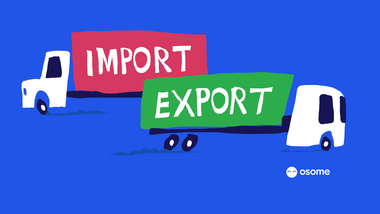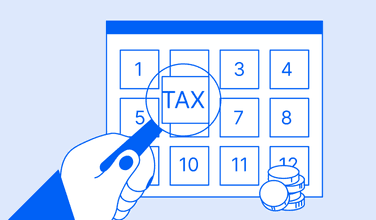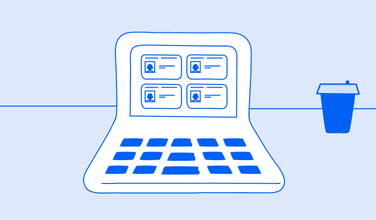Import and Export Guidelines for Businesses in the UK
Knowing the rules and regulations for importing and exporting is crucial for your business and it can be a little confusing. Save this guide and become an expert now.

Whether importing goods into the UK or exporting goods as an international seller, the process can be challenging. Dealing with logistics and customs declarations can be a nightmare for some people. With Brexit from the EU, importing and exporting goods may affect your business, as you will need to note a couple of new trade laws.
So, it is crucial to understand what is needed to import or export goods as a business or an international seller. This article will cover some of the frequently asked questions about importing or exporting goods in the UK.
Skip to:
What Exactly Is Importing and Exporting?What Is an EORI Number and How Can I Get One?
What Are Commodity Codes?
What Is Customs Duty and VAT Rates?
Do I Need To Pay Customs Duty Fees?
What Are the VAT Threshold Fees?
What Documents Do I Need To Import Goods or Export Goods?
Who Makes the Customs Declarations?
What Exactly Is Importing and Exporting?
Importing happens when goods enter a particular country. For instance, a bakery in the UK decides to purchase a particular ingredient from another country. When the supplies arrive in the bakery, this is considered importing.
On the other hand, exporting happens when you sell your goods to another business in another country. For instance, you are selling electronic goods in the UK. When someone from another country orders goods from you, you export the items to them.
What Is an EORI Number and How Can I Get One?
Businesses are required to obtain a GB EORI number for importing and exporting of goods into Great Britain (England, Wales or Scotland). So, you might be wondering what an EORI is. It stands for Economic Operator Registration and Identification number. This number is used for verification purposes between the customs authorities and the various government departments and agencies.
To apply for a GB EORI number, you will need to submit the following documents to HMRC:
- Unique Taxpayer Reference (UTR)
- Standard Industrial Classification (SIC)
- Business Start Date
- Government Gateway
- VAT number
- National Insurance Number
If your business is not based in the UK, you are not required to submit a Unique Taxpayer Reference (UTR), a Standard Industrial Classification (SIC) and National Insurance Number.
What Are Commodity Codes?
Commodity codes are international recognised reference numbers. These codes describe a specific type of product. You are required to indicate the commodity codes when you move your goods within or into the UK. It’s also crucial to find the right commodity code on the Tariff Tool, as it will determine the rate of customs duty and import VAT, taxes and preferential rates.
Jenny runs a company that distributes wooden furniture for offices. She imports and exports these goods. For this operation, she goes online to Trade Tariff and searches for a code for wooden furniture. She finds the code, which is 9403 3011 00 for custom clearance.
What Is Customs Duty and VAT Rates?
Customs duty will be charged for the goods that are entering the UK. Unlike VAT, the rates for custom duty can be varied as it depends on the item and where it is imported. These rates can be found in the commodity codes. So, it’s important to know the specific commodity code, as you don’t want to pay the additional cost for your importing.
On the other hand, VAT is a tax that you pay for goods imported from outside the UK. Certain goods, such as children’s clothing and property, are exempt from paying VAT.
Do I Need To Pay Customs Duty Fees?
Yes, you will need to pay customs duty when you import goods, such as excise goods and things worth more than £135, outside the UK. Curious about how much you need to pay? You may read more about trade tariff.
What Are the VAT Threshold Fees?
There are different tiers of VAT rates when you import goods into the UK. Currently, the standard rate is 20%. There is a reduced rate of 5% for specific goods like children’s car seats and zero tax for food and children’s clothing.
However, when it comes to VAT fees, you will need to pay if your goods are worth £135 or less. Yet, this doesn’t apply to non-commercial goods like gifts.
What Documents Do I Need To Import Goods or Export Goods?
This is where things may get a little complicated. This process may be intimidating if you are new to importing and exporting business. But do not worry! We will share with you the list of documents you will need:
Bill of Lading
It’s a legal document issued by the shipping company detailing the type, quantity and destination of the goods being carried. If you are importing goods from overseas into the UK, the shipping company that you’ve engaged will have to fill in this form.
GB EORI
This number is to identify the goods imported and for verification purposes between authorities and various government agencies and departments.
Commercial Invoice
This international shipping document provides important information about the goods being imported, such as the item's description, the buyer and the seller's value, the item, the quantity and weight of the item, etc. The customs authorities used commercial invoices to determine the value of the goods being traded.
Packing List
This document can be used for importing and exporting goods. It provides essential information such as the dimension and weight of the goods and how they are being packed.
C88 form
Also known as the Single Administrative Document for Import and Export, the C88 form is used for declaring the import and export of goods to and from EU countries. It’s also to help ease the custom clearance and taxes as well.
Export declaration
Before your goods can be exported to another country from the UK, you will need to submit a full declaration at customs for clearance.
Air waybill
Also known as an air consignment note, an air waybill is a document that provides the essential details about the shipment. However, unlike the Bill of Lading, the air waybill comes in a non-negotiable form and has less protection than the Bill of Lading.
Export Licence
This licence applies if you ship restricted goods, such as artwork, medicine, chemicals, historical artefacts, video game consoles, candles and wax to other countries.
Certificate of Origin
A certificate of origin is an international trade document certifying that goods are manufactured or processed in a particular country. The exporter is in charge of declaring this certificate of origin to the custom.
Who Makes the Customs Declarations?
Usually, the customs agent will complete the customs declarations and transport of goods.
Tip
With this long importing and exporting to-do list, the last thing you need to worry about is your company’s financial admin. Luckily, we have a team of experienced tax advisers who can take care of just that.







